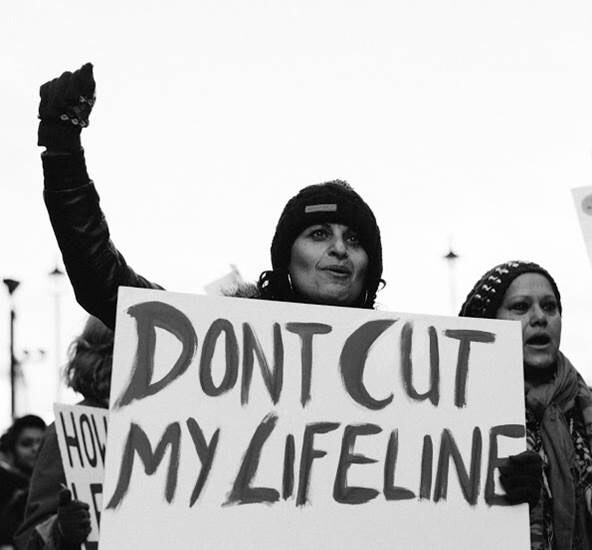Here at Filmotomy, we are keen supporters on female filmmakers, and are all in agreement that women need more opportunity in film. We were giving the exclusive opportunity to speak to London Feminist Film Festival, which is an independent festival set up in 2012, which celebrates feminist films past and present from international women directors. The festival aims to support women filmmakers in the male-dominated film industry, and to get women’s stories out there, and also inspire feminist discussion and activism. LFFF screen films that deal with feminist issues and/or that show a feminist representation of women.
We were lucky to speak to Marta Genova, the Head Coordinator, and discuss this year’s festival and why this festival is so important to cinema and female filmmakers.
Bee Garner: Hi Marta, thanks for joining us. Could you give us a brief introduction to the festival? What is it about and when does it take place?
Marta Genova: The London Feminist Film Festival is an independent festival which celebrates international feminist films past and present. We firmly believe in the potential of filmmaking as feminist activism and as an agent of social change.
It takes place at the Rio Cinema in Dalston, although in some editions we’ve partnered with other venues as well, and we hope to do so this year as well.

BG: How many festivals have there been prior to this year’s?
MG: This is the 6th edition.
BG: How did the festival come to be?
MG: Anna Read, the festival founder approached various cinemas and was lucky that feminist Clare Binns was head of programming at Hackney Picturehouse and took a chance on her.
BG: What is your role in the festival and how did you get involved?
MG: I am running the 2018 edition. I was first involved as a runner in the 2015 edition and subsequently have been taking on more and more responsibilities. This year Anna felt she had earned a much deserved rest and I took over from her for this edition.
BG: What makes the London Feminist Film Festival so different from other festivals?
MG: We are the only explicitly feminist film festival in London. There are other festivals which feature women’s films and champion women’s rights, but we are the only ones who will exclusively screen feminist films. We open a (safe) space for feminist filmmakers and audiences to come together and enjoy a feminist oasis, where we celebrate and activate!
BG: What has been your favourite film (or films) that you have screened at the festival? And has there been any submissions that surprised you?
MG: Asking for favorites is a bit like Sophie’s Choice… I would say that the film that has surprised me the most in recent years is “Hauntings in the Archive” (2016) by Julia Wieger and Nina Hoechtl which we screened last year. It’s a hybrid film, both essay, experimental, documentary… It’s an exploration of the possibilities of film as a conjuring device for ghosts and spectres…I will leave it at that, one really has to watch the film!

BG: How do you select which films to screen, and what’s the process behind organising screenings?
MG: Most of the films we show are the submissions we get for the competitive section. We watch and rate those films according to our criteria (Is it feminist/intersectional/diverse? Is it relevant to the moment? Will it generate a worthy debate? etc) and study the themes that emerge. It’s very organic, and somewhat mysterious. Some years we get a lot of submissions about a specific topic, or country, and so we put together session around those trends. We also do a Feminist Classic screening every year, in which we celebrate a film from the past – as the traditional canon is composed of Western films directed by white men, reclaiming that label is an important feminist gesture.

BG: How do film-makers submit a film?
MG: Through FilmFreeway, the festival submissions platform. The process has become extremely easy through them in the last few years.
BG: How do people get involved in helping out at the festival?
MG: All they have to do is ask! We are always looking for volunteers to lend a hand. People can volunteer as little or as much time as they can/want. We especially encourage BAME, LGBTQI and disabled volunteers and volunteers who have knowledge of cinema from the Global South. Just drop us a line at festival@londonfeministfilmfestival.com
BG: And lastly, what can we expect from this year’s event?
MG: This year we have pushed to reach filmmakers from the Global South and we are very happy to have received many films from non-Western countries. The programme is still in the making but it will be diverse, intersectional and inclusive. We are putting together some events for networking, workshops and more, stay tuned!
Make sure you check out LFFF’s website https://londonfeministfilmfestival.com/ and follow them via twitter @LdnFemFilmFest. And more importantly make sure you attend the festival to support new and emerging female talent. And if you are a female filmmaker you can submit your film via filmfreeway.com.




































